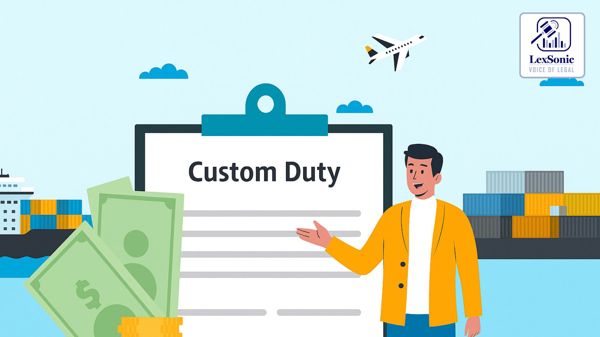In a recent case of Nalin Choksey vs The Commissioner of Customs, Kochi, the Supreme Court of India addressed critical issues regarding the liability for customs duties on imported goods, particularly focusing on the responsibility of subsequent purchasers when the original importer fails to pay the requisite customs duties. The case involves the appellant, a subsequent purchaser of a Porsche Carrera car, who was served with a show-cause notice and subjected to proceedings under the Customs Act, 1962.
Background of the Case:
The dispute began with the importation of a Porsche Carrera car by one Sri Jalaludheen Kunhi Thayil in 2002. In 2003, the car was sold to Sri Shailesh Kumar, and in 2004, the appellant purchased the vehicle from the second buyer. However, in 2006, a show-cause notice was issued to the appellant, the original importer, and several other parties, alleging that the car had been misdeclared during importation to evade customs duties.
Specifically, the authorities accused them of tampering with the car's chassis number and under-invoicing the vehicle.
The Department demanded the short-levied customs duty of Rs. 17,92,847/- from the appellant, invoking Sections 28(1) and 124 of the Customs Act. In response, the appellant argued that as a subsequent purchaser, they were not involved in the misdeclaration or the original importation and thus should not be liable for the unpaid customs duty.
Proceedings and Initial Judgment:
The appellant challenged the order issued by the Commissioner of Customs before the Customs, Excise and Service Tax Appellate Tribunal (CESTAT). The Appellate Tribunal ruled in favor of the appellant, stating that the appellant, being a bonafide purchaser, had no role in the importation or misdeclaration of the car. Consequently, the Tribunal annulled the duty demand and allowed the appellant's appeal.
However, the Department, dissatisfied with the decision, filed an appeal before the High Court of Kerala. The High Court reversed the Appellate Tribunal's order, asserting that the appellant was liable for the customs duties because they had exercised the option to redeem the confiscated vehicle under Section 125 of the Customs Act. This judgment favored the Department, and the appellant subsequently filed an appeal before the Supreme Court.
Supreme Court's Analysis:
In its examination of the case, the Supreme Court reviewed key provisions of the Customs Act, particularly Sections 28 and 124. The Court referred to the definition of "importer" under Section 2(26) of the Customs Act, which includes not just the original importer, but also the owner or beneficial owner of the goods, as well as any person who holds themselves out as the importer. However, the Court concluded that the appellant was neither the original importer nor the beneficial owner at the time of importation. The car was neither imported for the appellant nor on their behalf, and therefore, the appellant could not be classified as an importer under the Customs Act.
The Court also considered Section 125, which allows the confiscation of goods and offers an option for the payment of a fine in lieu of confiscation. However, the Court held that in order for the appellant to be treated as the "owner" of the vehicle under Section 125, their name would need to be registered as the owner of the vehicle under the Motor Vehicles Act, 1988. Since the car was still registered in the name of the original importer, the appellant was not legally considered the owner, and thus could not be liable under the provisions of Section 125.
Moreover, the Court highlighted that the provisions of Section 125 only allowed for action against the person from whose possession the goods were seized if the owner of the goods was unknown. Since the ownership of the vehicle was clear in this case, the appellant could not be deemed liable for the customs duty.
Conclusion and Judgment:
The Supreme Court ultimately quashed the proceedings against the appellant, including the show-cause notice and the confiscation of the vehicle. It restored the Appellate Tribunal's order, which had ruled in favor of the appellant. However, the Court clarified that this judgment would not affect any proceedings that the Department may initiate against the original importer of the car, Sri Jalaludheen Kunhi Thayil.
In summary, the Supreme Court's decision reinforced the principle that a subsequent purchaser cannot be held liable for the customs duties of an imported item unless they are involved in the importation or misdeclaration process. This case serves as an important reminder of the legal definitions and conditions under which customs duties can be demanded and the responsibilities of various parties in the chain of importation and sale.
Section 28, Customs Act - 1962
Section 124, Customs Act - 1962
Section 125, Customs Act - 1962
Customs Act, 1962
Motor Vehicles Act, 1988

